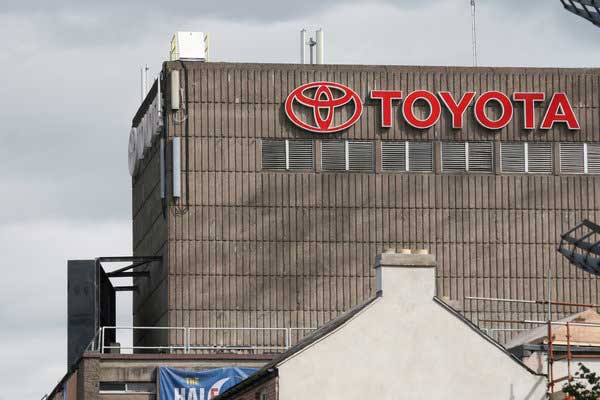In recent years, Toyota has taken a unique approach to the evolving automotive landscape, emphasizing hydrogen-powered cars over electric vehicles. In this article, we will delve into Toyota’s strategy, examining its advantages, environmental benefits, and the challenges it faces in achieving hydrogen domination.

Hydrogen Power’s Superior Energy Density
Hydrogen fuel cells offer a higher energy density compared to batteries, enabling them to store more energy in a smaller space. This results in hydrogen-powered cars having a significantly longer driving range when compared to electric vehicles. While battery technology has improved the electric vehicle range, it still falls short of what hydrogen-powered vehicles can achieve.
Environmental Benefits of Hydrogen-Powered Vehicles
One of the primary advantages of hydrogen-powered cars is their environmental friendliness. Both hydrogen and electric vehicles emit no emissions when in motion. However, the source of energy used to charge electric vehicle batteries plays a critical role in their environmental impact. While hydrogen-powered cars rely on renewable energy sources like wind and solar, electric vehicles primarily depend on fossil fuels for their electricity.
Quick Refueling Times
Hydrogen-powered vehicles have another edge when it comes to convenience – refueling times. You can refuel a hydrogen-powered vehicle in roughly the same amount of time as a gasoline-powered vehicle. In contrast, electric vehicles require hours to recharge and are dependent on the availability of charging stations.
Adaptability and Performance
Hydrogen-powered vehicles are more adaptable than electric ones, finding applications in buses, vehicles, and even aircraft. Their lighter weight enhances overall performance and efficiency, making them a versatile option in the transportation sector.
Toyota’s Commitment to Hydrogen Technology
Toyota’s commitment to hydrogen technology is evident in its substantial investments in research and development to increase fuel cell efficiency and reduce production costs. Although challenges such as the cost of green hydrogen generation and developing the necessary infrastructure exist, Toyota is determined to overcome these obstacles.
Toyota’s Dual Strategy
It’s essential to note that Toyota is not entirely disregarding electric vehicles. The company plans to develop new electric cars for its brands in 2026. This demonstrates Toyota’s intent to address the needs of a wide range of consumers, acknowledging the differences in market trends and adoption rates worldwide.
Conclusion
Toyota’s focus on hydrogen-powered cars represents a unique approach in the automotive industry. While electric vehicles are gaining momentum, Toyota remains steadfast in its belief that hydrogen-powered cars have their place. The future of the automotive industry will likely involve a harmonious coexistence of both technologies, catering to diverse market segments and needs. As Toyota’s newly appointed CEO, Coji Sato, pushes for advancements in hydrogen technology, the industry continues to witness a dynamic transformation, leaving room for broader discussions about sustainable mobility solutions. Toyota’s strategy serves as a testament to the ever-evolving landscape of the automotive world.
